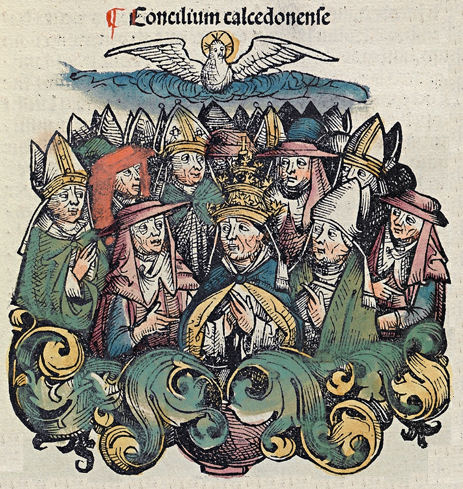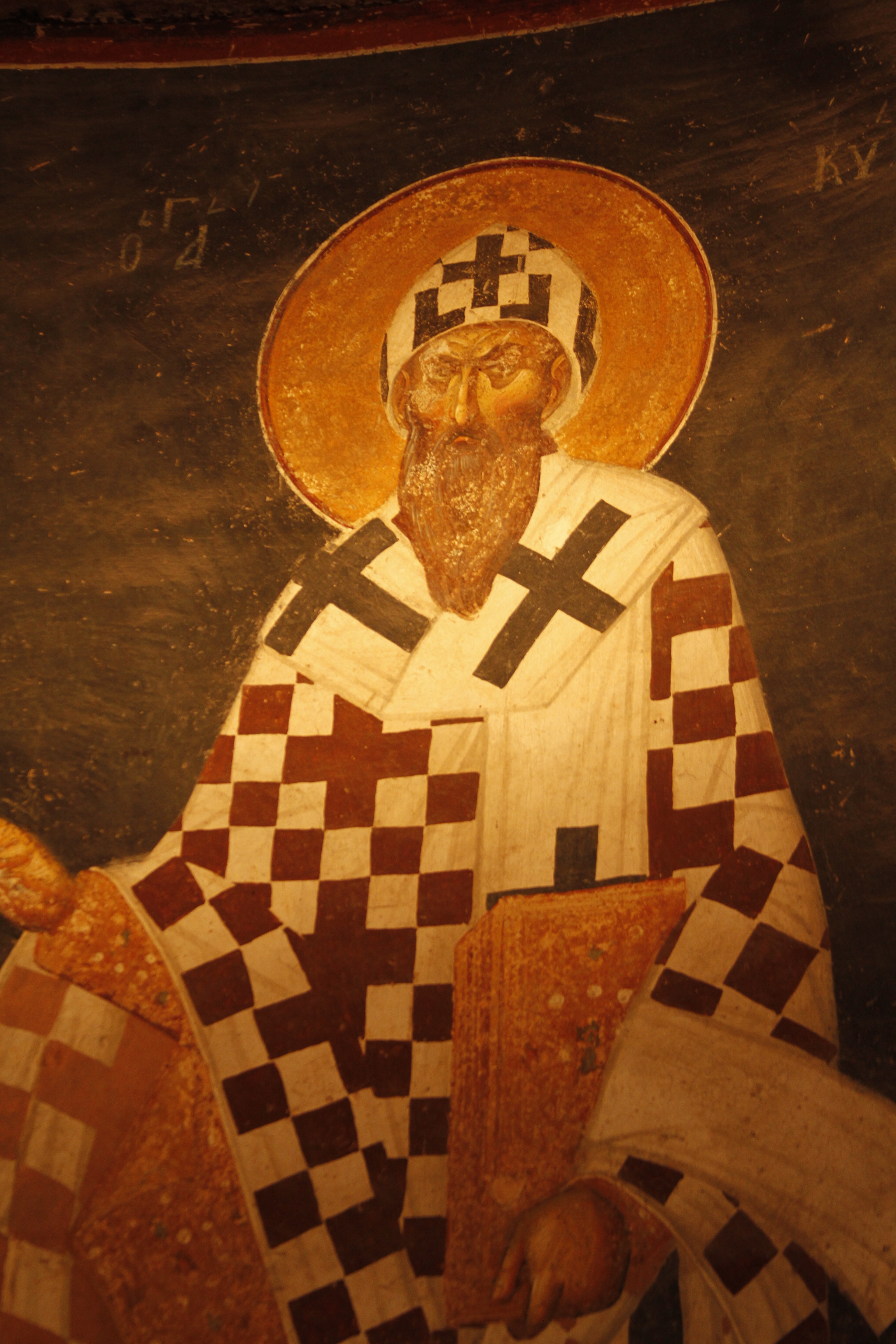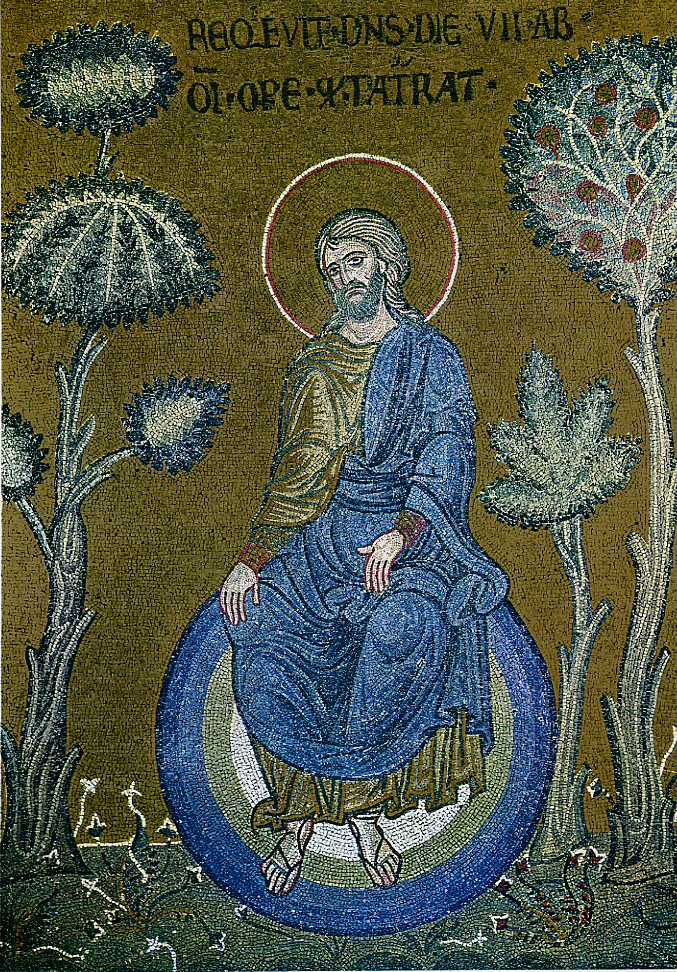|
Christological
In Christianity, Christology is a branch of theology that concerns Jesus. Different denominations have different opinions on questions such as whether Jesus was human, divine, or both, and as a messiah what his role would be in the freeing of the Jewish people from foreign rulers or in the prophesied Kingdom of God, and in the salvation from what would otherwise be the consequences of sin. The earliest Christian writings gave several titles to Jesus, such as Son of Man, Son of God, Messiah, and , which were all derived from Hebrew scripture. These terms centered around two opposing themes, namely "Jesus as a preexistent figure who becomes human and then returns to God", versus adoptionism – that Jesus was a human who was "adopted" by God at his baptism, crucifixion, or resurrection. Prior to 2007, the scholarly consensus was that the divinity of Christ was a later development, Gerd Lüdemann"An Embarrassing Misrepresentation", '' Free Inquiry'', October / November 2007: ... [...More Info...] [...Related Items...] OR: [Wikipedia] [Google] [Baidu] |
Christian Theology
Christian theology is the theology – the systematic study of the divine and religion – of Christianity, Christian belief and practice. It concentrates primarily upon the texts of the Old Testament and of the New Testament, as well as on Christian tradition. Christian theologians use biblical exegesis, rationality, rational analysis and argument. Theologians may undertake the study of Christian theology for a variety of reasons, such as in order to: * help them better understand Christian tenets * make comparative religion, comparisons between Christianity and other traditions * Christian apologetics, defend Christianity against objections and criticism * facilitate reforms in the Christian church * assist in the evangelism, propagation of Christianity * draw on the resources of the Christian tradition to address some present situation or perceived need * education in Christian philosophy, especially in Neoplatonism, Neoplatonic philosophyLouth, Andrew. The Origins of the Ch ... [...More Info...] [...Related Items...] OR: [Wikipedia] [Google] [Baidu] |
Miaphysitism
Miaphysitism () is the Christological doctrine that holds Jesus, the Incarnate Word, is fully divine and fully human, in one nature ('' physis'', ). It is a position held by the Oriental Orthodox Churches. It differs from the Dyophysitism of the Catholic Church, Eastern Orthodox Churches, the Church of the East and the major Protestant denominations, which holds that Jesus is one "person" of two "natures", a divine nature and a human nature, as defined by the Council of Chalcedon in 451. While historically a major point of controversy within Christianity, some modern declarations by both Chalcedonian and miaphysite () churches claim that the difference between the two Christological formulations does not reflect any significant difference in belief about the nature of Christ. Other statements from both Chalcedonian and miaphysite churches claim that such difference is indeed theological although "widened by non-theological factors" Terminology The word ''miaphysite'' der ... [...More Info...] [...Related Items...] OR: [Wikipedia] [Google] [Baidu] |
Council Of Chalcedon
The Council of Chalcedon (; ) was the fourth ecumenical council of the Christian Church. It was convoked by the Roman emperor Marcian. The council convened in the city of Chalcedon, Bithynia (modern-day Kadıköy, Istanbul, Turkey) from 8 October to 1 November 451. The council was attended by over 520 bishops or their representatives, making it the largest and best-documented of the first seven ecumenical councils. The principal purpose of the council was to re-assert the teachings of the ecumenical Council of Ephesus against the teachings of Eutyches and Nestorius. Such doctrines viewed Christ's divine and human natures as separate (Nestorianism) or viewed Christ as solely divine ( monophysitism). Agenda The ruling of the council stated: Whilst this judgment marked a significant turning point in the Christological debates, it also generated heated disagreements between the council and the Oriental Orthodox Church, who did not agree with such conduct or proceedings. Th ... [...More Info...] [...Related Items...] OR: [Wikipedia] [Google] [Baidu] |
Council Of Ephesus
The Council of Ephesus was a council of Christian bishops convened in Ephesus (near present-day Selçuk in Turkey) in AD 431 by the Roman Emperor Theodosius II. This third ecumenical council, an effort to attain consensus in the church through an assembly representing all of Christendom, Richard Kieckhefer (1989). "Papacy". '' Dictionary of the Middle Ages''. . confirmed the original Nicene Creed, * * * and condemned the teachings of Nestorius, Patriarch of Constantinople, who preferred that the Virgin Mary be called '' Christotokos'', "Christ-bearer", over '' Theotokos'', "God-bearer"; in contrast to Cyril of Alexandria who deemed ''Theotokos'' to be enough on its own. It met from 22 June to 31 July 431 at the Church of Mary in Ephesus in Anatolia. Background Nestorius' doctrine, Nestorianism, which emphasized the distinction between Christ's human and divine natures and argued that Mary should preferably be called ''Christotokos'' (Christ-bearer) over ''Theotokos'' (G ... [...More Info...] [...Related Items...] OR: [Wikipedia] [Google] [Baidu] |
Oriental Orthodox Churches
The Oriental Orthodox Churches are Eastern Christian churches adhering to Miaphysite Christology, with approximately 50 million members worldwide. The Oriental Orthodox Churches adhere to the Nicene Christian tradition. Oriental Orthodoxy is one of the oldest branches in Christianity. As some of the oldest religious institutions in the world, the Oriental Orthodox Churches have played a prominent role in the history and culture of countries and regions such as Armenia, Egypt, Eritrea, Ethiopia, Sudan, the Levant, Iraq and the Malabar region of southern India. As autocephalous churches, their bishops are equal by virtue of episcopal ordination. Their doctrines recognize the validity of only the first three ecumenical councils. The Oriental Orthodox communion is composed of six autocephalous national churches: the Coptic Orthodox Church of Alexandria; the Syriac Orthodox Church of Antioch; the Armenian Apostolic Church comprising the autocephalous Catholicosate ... [...More Info...] [...Related Items...] OR: [Wikipedia] [Google] [Baidu] |
Hypostatic Union
Hypostatic union (from the Greek: ''hypóstasis'', 'person, subsistence') is a technical term in Christian theology employed in mainstream Christology to describe the union of Christ's humanity and divinity in one hypostasis, or individual personhood. In the most basic terms, the concept of hypostatic union states that Jesus Christ is both fully God and fully man. He is simultaneously perfectly divine and perfectly human, having two complete and distinct natures at once. The Athanasian Creed recognized this doctrine and affirmed its importance by stating: He is God from the essence of the Father, begotten before time; and he is human from the essence of his mother, born in time; completely God, completely human, with a rational soul and human flesh; equal to the Father as regards divinity, less than the Father as regards humanity. Although he is God and human, yet Christ is not two, but one. He is one, however, not by his divinity being turned into flesh, but by God's taking h ... [...More Info...] [...Related Items...] OR: [Wikipedia] [Google] [Baidu] |
Pre-existence Of Christ
The pre-existence of Christ asserts the existence of Christ prior to his incarnation as Jesus. One of the relevant Bible passages is John 1 () where, in the Trinitarian interpretation, Christ is identified with a pre-existent divine hypostasis (substantive reality) called the ''Logos'' (Koine Greek for "word"). There are nontrinitarian views that question the aspect of personal pre-existence, the aspect of divinity, or both. More particularly, John 1:15, 18 says: This doctrine is supported in when Jesus refers to the glory that he had with the Father "before the world existed" during the Farewell Discourse.''Creation and Christology: A Study on the Johannine Prologue in the Light of Early Jewish Creation Accounts'' by Masanobu Endo 2002 page 233 also refers to the Father loving Jesus "before the foundation of the world". , , and are passages that are seen as evidence that Paul believed in the pre-existence of Christ. Although the interpretation that these passages ref ... [...More Info...] [...Related Items...] OR: [Wikipedia] [Google] [Baidu] |
Jesus In Christianity
In Christianity, Jesus is the Son of God (Christianity), Son of God as chronicled in the Bible's New Testament, and in most Christian denominations he is held to be God the Son, a prosopon (Person) of the Trinity of God in Christianity, God. Christians believe him to be the messiah (giving him the title ''Christ (title), Christ''), Old Testament messianic prophecies quoted in the New Testament, who was prophesied in the Bible's Old Testament. Through Crucifixion of Jesus, Jesus's crucifixion and Resurrection of Jesus, resurrection, Christians believe that God offers humans Salvation in Christianity, salvation and Eternal life (Christianity), eternal life, with Jesus's death Atonement in Christianity, atoning for all Christian views on sin, sin. These teachings emphasise that as the Lamb of God, Jesus chose to suffer nailed to the cross at Calvary as a sign of his obedience to the will of God, as an "agent and servant of God".''The Christology of Anselm of Canterbury'' by Dániel ... [...More Info...] [...Related Items...] OR: [Wikipedia] [Google] [Baidu] |
Second Council Of Ephesus
The Second Council of Ephesus was a Christological church synod in 449 convened by Emperor Theodosius II under the presidency of Pope Dioscorus I of Alexandria. It was intended to be an ecumenical council, and it is accepted by the miaphysite churches, who view it as a valid continuation of the First Council of Ephesus if not an ecumenical council in its own right. The Second Council of Ephesus was explicitly repudiated by the next council, the Council of Chalcedon of 451. The Council of Chalcedon is recognized as the fourth ecumenical council by Chalcedonian Christians, and the Second Council of Ephesus was named the '' Latrocinium'' ("Robber Synod") by Pope Leo I; the Chalcedonian churches, particularly the Roman Catholic and Eastern Orthodox communions, continue to accept this designation, while the Oriental Orthodox repudiate it. Both this council and that at Chalcedon dealt primarily with Christology, the study of the nature of Christ. Both councils affirmed the doct ... [...More Info...] [...Related Items...] OR: [Wikipedia] [Google] [Baidu] |
Jesus
Jesus (AD 30 or 33), also referred to as Jesus Christ, Jesus of Nazareth, and many Names and titles of Jesus in the New Testament, other names and titles, was a 1st-century Jewish preacher and religious leader. He is the Jesus in Christianity, central figure of Christianity, the Major religious groups, world's largest religion. Most Christians consider Jesus to be the Incarnation (Christianity), incarnation of God the Son and awaited Messiah#Christianity, messiah, or Christ (title), Christ, a descendant from the Davidic line that is prophesied in the Old Testament. Virtually all modern scholars of classical antiquity, antiquity agree that Historicity of Jesus, Jesus existed historically. Accounts of Life of Jesus, Jesus's life are contained in the Gospels, especially the four canonical Gospels in the New Testament. Since the Age of Enlightenment, Enlightenment, Quest for the historical Jesus, academic research has yielded various views on the historical reliability of t ... [...More Info...] [...Related Items...] OR: [Wikipedia] [Google] [Baidu] |
Ontology
Ontology is the philosophical study of existence, being. It is traditionally understood as the subdiscipline of metaphysics focused on the most general features of reality. As one of the most fundamental concepts, being encompasses all of reality and every entity within it. To articulate the basic structure of being, ontology examines the commonalities among all things and investigates their classification into basic types, such as the Theory of categories, categories of particulars and Universal (metaphysics), universals. Particulars are unique, non-repeatable entities, such as the person Socrates, whereas universals are general, repeatable entities, like the color ''green''. Another distinction exists between Abstract and concrete, concrete objects existing in space and time, such as a tree, and abstract objects existing outside space and time, like the number 7. Systems of categories aim to provide a comprehensive inventory of reality by employing categories such as Substance t ... [...More Info...] [...Related Items...] OR: [Wikipedia] [Google] [Baidu] |
First Seven Ecumenical Councils
In the history of Christianity, the first seven ecumenical councils include the following: the First Council of Nicaea in 325, the First Council of Constantinople in 381, the Council of Ephesus in 431, the Council of Chalcedon in 451, the Second Council of Constantinople in 553, the Third Council of Constantinople from 680 to 681 and finally, the Second Council of Nicaea in 787. All of the seven councils were convened in what is now the country of Turkey. These seven events represented an attempt by Church leaders to reach an orthodox consensus, restore peace and develop a unified Christendom. Among Eastern Christians the Eastern Orthodox, Oriental Orthodox, and Church of the East (Assyrian) churches and among Western Christians the Roman Catholic, Anglican, Utrecht and Polish National Old Catholic, and some Scandinavian Lutheran churches all trace the legitimacy of their clergy by apostolic succession back to this period and beyond, to the earlier period referred to as t ... [...More Info...] [...Related Items...] OR: [Wikipedia] [Google] [Baidu] |








